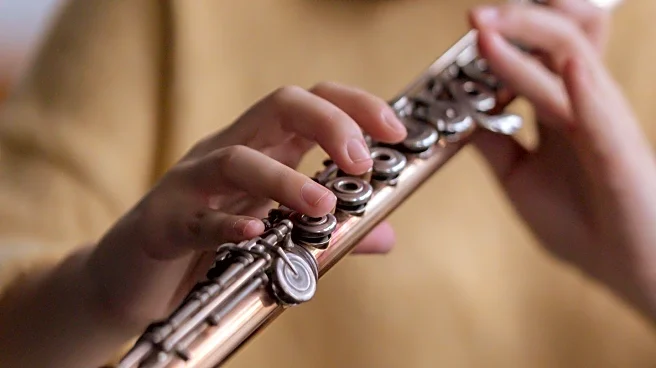What's Happening?
A patient with Parkinson's disease played the clarinet during brain surgery, providing surgeons with immediate auditory feedback on the effectiveness of the procedure. This unique approach allowed the medical team to assess the impact of their surgical
interventions in real-time, potentially improving the precision and outcome of the treatment. The surgery was performed to alleviate symptoms of Parkinson's, a neurodegenerative disorder that affects movement and coordination. By playing the clarinet, the patient helped the surgeons fine-tune their techniques to better target the affected areas of the brain.
Why It's Important?
This innovative surgical method highlights the potential for integrating patient feedback into complex medical procedures, particularly in neurology. By allowing patients to perform tasks during surgery, doctors can gain valuable insights into the immediate effects of their interventions, potentially leading to more effective treatments. This approach could revolutionize the way certain neurological surgeries are conducted, offering hope for improved outcomes for patients with movement disorders like Parkinson's. The success of such procedures may encourage further research and development in patient-involved surgical techniques.














